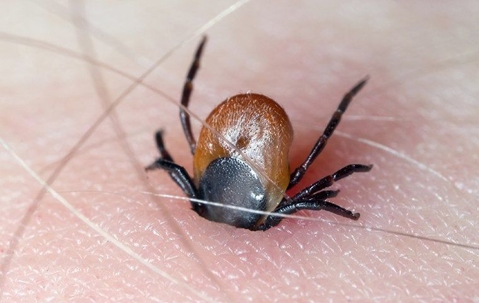If you spend any time outdoors, you’ve probably heard about ticks and the risks of being bitten. But, the truth is that ticks can be a problem even if you’re not camping or hiking. Ticks can be found around Corpus Christi properties, and knowing how to protect yourself is important.
The Many Tick-Borne Illnesses
Ticks are vectors of many different illnesses, and some of these can be serious and even deadly. The most well-known tick-borne illness is Lyme disease, and it is spread by the deer tick. Then, there are other illnesses such as Rocky Mountain spotted fever, anaplasmosis, and babesiosis. While not all tick bites will lead to any illness, there is always some risk there. It’s vital to be cautious when in areas known to have ticks, and it’s also important to try and prevent them from getting around your yard.
How Do Ticks Find A Host?
The ability that ticks have to find a host might seem almost superhuman, but they’re also quite simple to explain. Ticks can sense the breath, body odor, and body heat of passing animals or people, and they can even feel the vibrations of a mammal walking. Some species can even detect shadows.
They will wait on plants, usually long grass or other dense vegetation, for a host to pass by. They patiently sit on the tips of the plant, and when an animal or person gets close enough, they grab on.
Another interesting fact about ticks is that they don’t actually fly or jump. Instead, what they do is known as “questing.” They hold onto leaves or grass with their third and fourth pair of legs while leaving their first pair of legs outstretched. Then, they quickly climb onto the unsuspecting host.
What Do Tick Bites Look Like?
The most obvious indicator that you’ve been bitten by a tick is if the creature is still attached to your skin. These parasitical pests will embed their heads into the skin and slowly drink enough blood until they become engorged and drop off.
However, there is a chance that you won’t ever see the actual tick at all. Bite marks can vary from person to person, but one big sign of a tick bite is noticing a rash in a bullseye pattern. This is one of the main symptoms of Lyme disease.
Overall, it’s best to be cautious if you’ve been spending time outdoors and pay attention to any potential bite marks.
Why You Should Check For Ticks
Even if a tick is a vector for disease, its bite won’t necessarily make you sick, especially if removed quickly. Detecting tick bites and tick-borne illnesses can lead to the prevention and cure in many cases, so taking the time to check for ticks is a very smart idea.
When you come back from areas that could potentially have checks, be sure to check over your body in a thorough manner. You should also switch to clean clothing and dry the clothes you were wearing in a hot dryer. Also, take a hot shower.
Preventing Ticks In Your Yard
In order to keep your yard free of ticks, the best thing to do is contact the tick control experts at EnviroGuard for assistance. Our team offers professional pest assistance, including the prevention and removal of tick problems.
With our guidance, you can also take some steps to deter ticks on your own. Here are some measures to follow:
- Regularly trim shrubs, bushes, and trees.
- Deter rodents, as they often carry ticks, by covering garbage cans with lids and keeping kitchens cleaned.
- Keep wildlife from coming around your yard by storing pet food inside and removing access to bird feeders.
Learn more about preventing ticks and the pests that carry them by giving EnviroGuard a call today.

